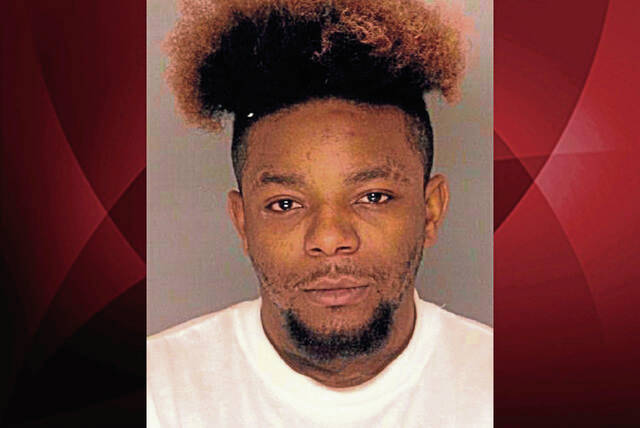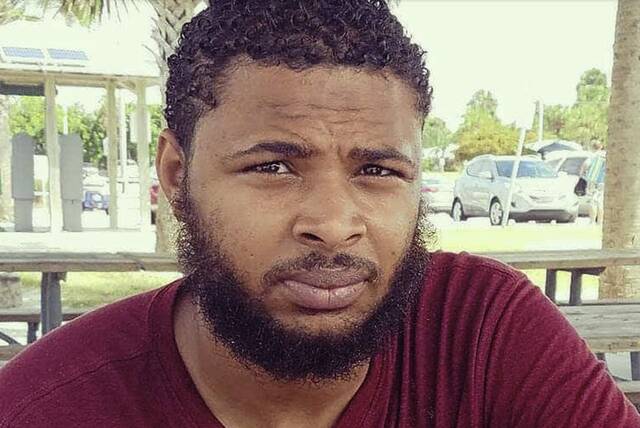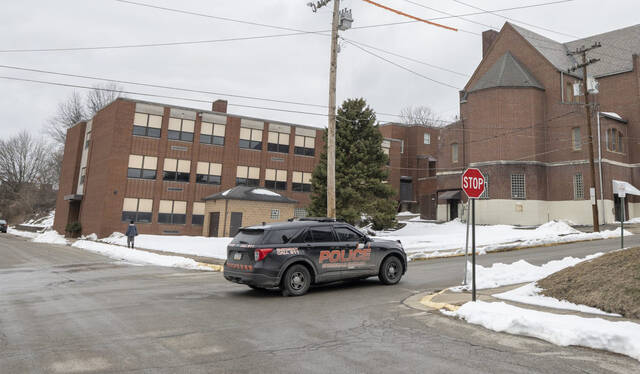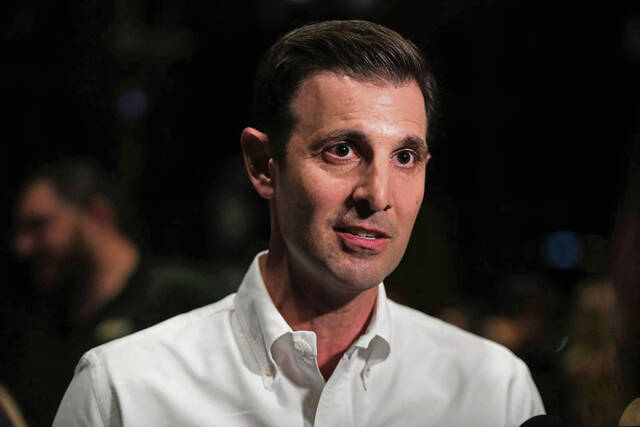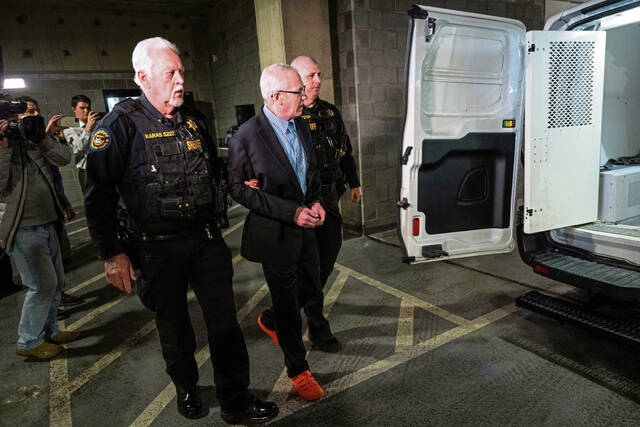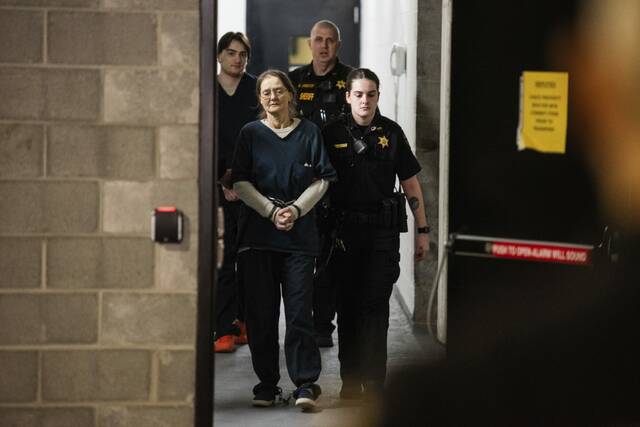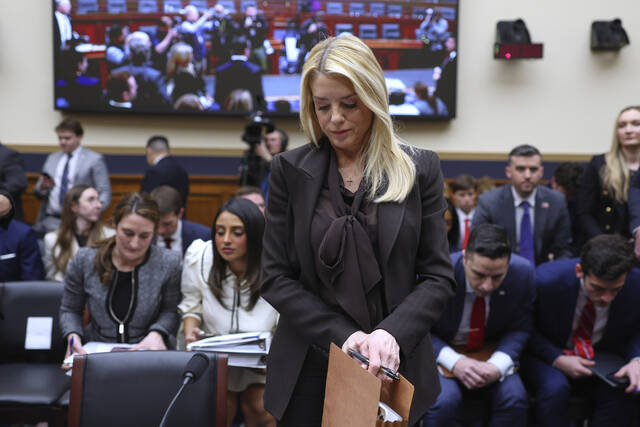A Taco Bell manager convicted of first-degree murder for killing one of the fast-food restaurant’s employees in Scott has won a new trial after his lawyer raised allegations of prosecutorial misconduct.
Zairyre Simmons, 26, of Pittsburgh was sentenced in May to serve the rest of his life in prison with no chance for parole after a jury found him guilty of killing Dorian Carver, 32, of Harrison.
Last month, however, Allegheny County Common Pleas Judge Bruce Beemer granted Simmons a new trial after prosecutors conceded some of the other crimes charged in the case — illegally carrying a stolen gun — were mishandled. Simmons’ lawyer argued that by pursuing charges they shouldn’t have, prosecutors cast his client in a negative light at the outset of the trial.
The decision has left the victim’s mother apoplectic.
“I couldn’t even believe what I was hearing,” Carmella Wilson told TribLive on Wednesday. “I’m going to fight for my son. I’ll fight for him alive, and I’ll fight for him dead.”
Simmons was accused of killing Carver on Nov. 9, 2022. According to investigators, Simmons was working as a manager at Taco Bell on Cochran Road in Scott, where Carver worked. That morning, the two got into a dispute over a written reprimand that Carver had received.
Carver attempted to walk away, but Simmons followed him into the restaurant’s vestibule, where the argument turned physical.
Carver left. However, police said, Simmons retrieved a coat from inside Taco Bell — where he had a gun — and then followed Carver to the lobby of the Northwestern Mutual Life insurance building 500 feet away.
Simmons shot Carver twice.
Simmons was charged with criminal homicide, receiving stolen property for the gun used in the crime and carrying a firearm without a license. The case went to a jury trial in January.
The prosecutor, Allegheny County Deputy District Attorney Jarrod Caruso, presented no evidence to prove the gun or receiving stolen property counts.
Simmons’ lawyer made a motion for his client to be acquitted on those counts.
Caruso acknowledged in court that he did not have the necessary evidence to support those two charges when they were presented to the jury.
“As to the carrying without a license, your honor, I have been waiting for that evidence, and it did not come in time,” Caruso said, according to a trial transcript. “As to the (receiving stolen property), in speaking with my detectives, there was a belief we might have been able to find the individual that owned it, initially. That never came through.”
Beemer, the judge, granted the motion and acquitted Simmons on those counts.
Speaking to the lawyers out of the jury’s presence, Beemer noted that while on occasion prosecutors fail to present sufficient evidence to sustain a charge, the circumstances of the Simmons case were outside the norm.
“(W)hen I’m telling a jury that Mr. Simmons is being charged with the gun being stolen…and they are just hoping and guessing and praying that you are going to produce a witness, that is not the way that this is supposed to happen. I can tell you that,” Beemer said, according to the transcript.
No motion was made for a mistrial, though, and Beemer allowed the jurors to deliberate the homicide count. After about nine hours, they returned a verdict of guilty of first-degree murder.
The remedy
In June, appellate attorney Ryan James filed a motion for a new trial, arguing that Caruso failed to follow the ethical standards required for a prosecutor.
“After criminal charges are filed, a prosecutor should maintain them only if the prosecutor continues to reasonably believe that probable cause exists and that admissible evidence will be sufficient to support conviction beyond a reasonable doubt,” James wrote, citing legal standards set by the American Bar Association. “Here, however, that’s not what transpired.”
James argued the prosecution set the stage at trial where the jury was “preconditioned to expect certain things about Zairyre Simmons, namely that he concealed firearms he was not licensed to carry, and that he possessed not just a firearm, but a stolen firearm.”
“So, before 12 citizens were selected to hear even a single piece of evidence, impressed upon them was the idea that not only may Zairyre Simmons be a killer, but he’s one who meddles in stolen property and is not licensed to carry a firearm,” James wrote.
“The impact of that sort of caricature cannot be understated, particularly where the jury then selected is reminded, by the court’s preliminary instructions, that, again, Zairyre Simmons may not just be a killer but an altogether dishonest and socially irresponsible killer at that.”
James acknowledged that before jurors began deliberations, Beemer told them to “disregard the information that you heard that was read to you regarding those two counts.”
But, James said that was not enough to dissuade prosecutorial conduct in the future.
“Only a new trial will provide the assurance necessary that Zairyre Simmons received a fair trial, free of unnecessary taint, and only a new trial will be a remedy that firmly reminds the commonwealth that it may not proceed so laxly in adhering to its higher calling of being a ‘minister of justice.’”
Questioning the prosecutor
As part of his request for a new trial, James also filed a motion seeking documents and testimony from Caruso to learn when he knew he did not have adequate evidence to support the charges.
Initially, Caruso, who by then had been promoted to chief trial deputy of recruitment and training, responded for the DA’s office.
In his filing, he wrote there was ample evidence to convict Simmons of first-degree murder. What’s more, Caruso wrote, since Simmons didn’t raise the issue of prosecutorial misconduct at trial, the issue could not be appealed.
“If the defendant believed the commonwealth had engaged in prosecutorial misconduct, or that this resulted in his being denied due process, the time to speak up was then,” Caruso wrote.
“The jury merely did not interpret the evidence in the way the defendant would have wished. Facts in record demonstrate the jury’s verdict of first-degree murder is not contrary to the evidence and does not demonstrate a miscarriage of justice.”
On Aug. 1, the judge granted James’ motion seeking the documentation, and a hearing on the matter was scheduled for Aug. 21. James was going to seek to have Caruso testify.
But on Aug. 7, Deputy District Attorney Ronald M. Wabby Jr. told the court the prosecution had reviewed the trial transcript and Simmons’ motion.
“In the interests of justice, the commonwealth concedes that defendant is entitled to a new trial on the criminal homicide count,” Wabby wrote. “The case should be rescheduled for trial.”
A mother’s frustration
Wilson, the victim’s mother, grew frustrated with Caruso in the months leading up to the trial. That feeling carried over after the proceedings began.
She said it felt as if Caruso were not prepared during trial. She noted that the judge repeatedly chastised the prosecutor.
“If Caruso had been focused on getting ready for the trial, he wouldn’t have made that mistake,” Wilson said.
Still, the jury returned a guilty verdict on the most serious charge.
It brought Wilson relief.
“We were starting to get back to regular life a little bit.”
Wilson said she was able to sleep again, that it felt like there was closure.
Last month, Caruso called her about Simmons’ motion. Now, Wilson said she’s back to feeling unsettled, angry and full of rage.
Wilson doesn’t understand why the same judge who made the decision to throw out the two charges would now go back and grant an entirely new trial.
“If that judge thought what Jarrod had done was so grievous, why didn’t he stop the trial right then?” Wilson asked.
She also wants to know what, if any, consequences Caruso might face.
“What is the repercussion in that DA’s office to put a victim’s family through this a second time?” she asked. “They need to be accountable for what they’re doing down there.”
The DA’s office did not respond Wednesday to a request for comment. Caruso did not return a message.
’We’ll fight’
Caruso joined the DA’s office in 2001 and spent several years in auto theft and then narcotics.
He was promoted to deputy district attorney over the area prosecutors and the warrant office a few years ago.
It is unclear why the case was assigned to Caruso. Simmons went to trial during a period of exodus from the DA’s office. Over the last two years, the office has lost eight veteran homicide prosecutors.
Following the verdict in the Simmons case, Caruso was promoted to become the chief trial deputy over training and recruitment.
Wilson said she spoke with a new prosecutor on Tuesday and there was discussion about potentially reaching a plea agreement in the case.
She is adamantly opposed.
“He gets all the rights now. My son has no rights,” she said. “We’re ready as a family. We’ll fight. That boy is not getting a plea.”


